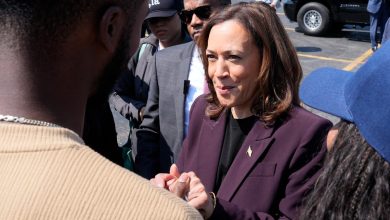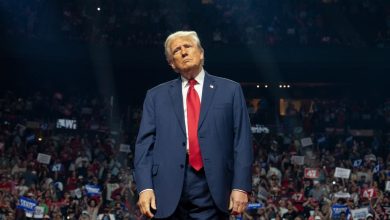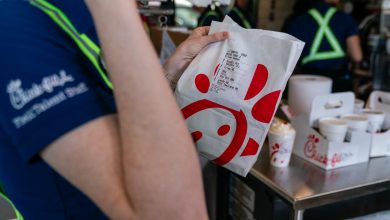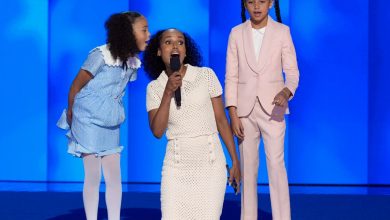Supreme Court’s ‘dangerous’ decision shields Trump from criminal prosecution. Where do his cases stand now?
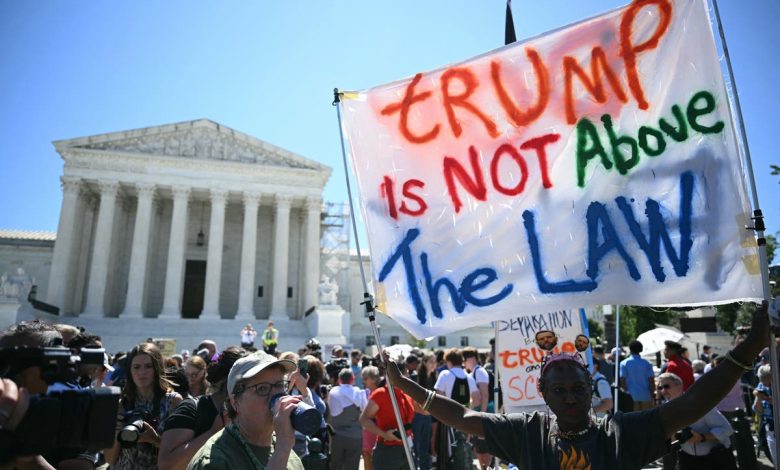
The Supreme Court’s monumental decision on whether Donald Trump is shielded from criminal prosecution for his actions in office will likely derail his election interference trial.
On Monday, the court’s conservative majority ruled in a 6-3 decision that Trump is immune from prosecution for “official” acts performed as president, as outlined in the indictment against him.
It will now be up to the lower federal court judge overseeing the case to hold hearings on whether the allegations – including Trump’s alleged conspiracy to overturn Joe Biden’s victory and a pressure campaign aimed at his vice president and state officials – constitute “official” or “unofficial” acts.
The Supreme Court flatly stated that “there is no immunity for unofficial acts” under the presidency.
But the “outer perimeter” of the president’s duties must be granted some immunity, the majority wrote. Trump’s communications with his Department of Justice and other White House officials to allegedly plot his attempt to stay in power are off limits to prosecutors, and can’t even be used as evidence, under the ruling.
The case will be sent back to the district court in Washington DC, where Judge Tanya Chutkan will be tasked with determining whether the actions listed in Trump’s indictment are “official.”
That likely protracted legal battle will continue to delay a trial and diminish prospects that it will begin before Election Day, or even after the presidential inauguration in January 2025.
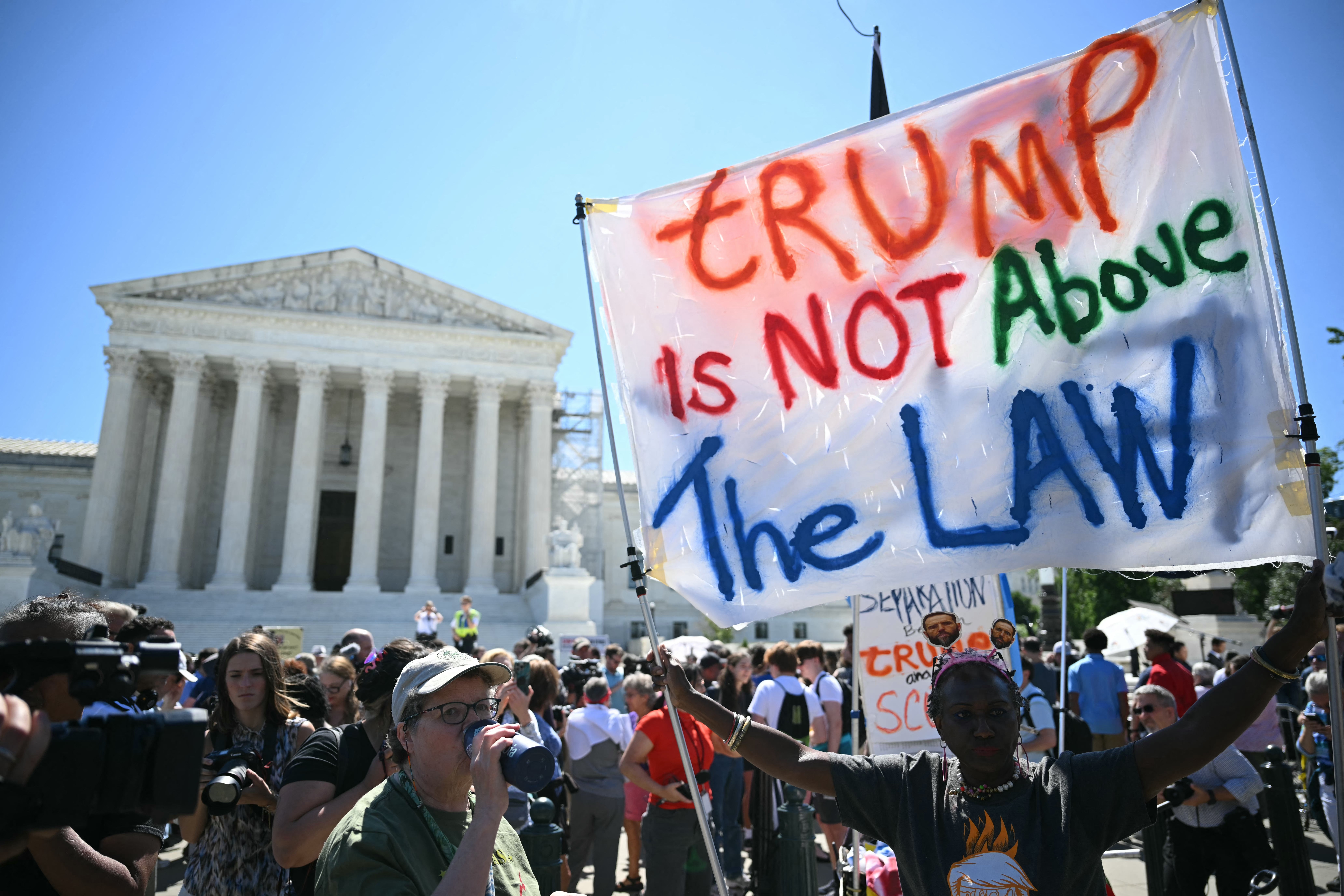
The ruling – and the court’s decision to wait until the final day of its session to release it – ensures that voters will cast ballots later this year without finding out if Trump unlawfully conspired to overturn the last election.
Trump’s contacts with people outside the White House and federal government – including Georgia secretary of state Brad Raffensperger, whom Trump pressured to “find” votes that would overturn his loss in the state – will be reviewed.
That also means that the “fake electors” scheme and Trump’s alleged state-level pressure campaign to reverse results can still be considered “unofficial” acts.
Writing for the majority, Chief Justice John Roberts said the president has “broad power to speak on matters of public concern” – including about elections. But the president “plays no role” in the certifying of elections by states, leaving it up to Chutkan to perform a “close analysis” of the indictment to consider if Trump’s actions are protected.
“Certain allegations – such as those involving Trump’s discussions with the Acting Attorney General – are readily categorized in light of the nature of the President’s official relationship to the office held by that individual,” according to the court’s majority.
“Other allegations – such as those involving Trump’s interactions with the Vice President, state officials, and certain private parties, and his comments to the general public – present more difficult questions,” the ruling added. “Although we identify several considerations pertinent to classifying those allegations and determining whether they are subject to immunity, that analysis ultimately is best left to the lower courts to perform in the first instance.”
Prosecutors with special counsel Jack Smith’s office also will have a chance to dissect whether Trump’s contacts with Mike Pence and other officials can be protected.
A grand jury voted to indict Trump for conspiracy and obstruction in August 2023. Two months later, the former president’s attorneys filed a motion to dismiss the case, arguing that he should be entitled to absolute immunity so that presidents can make decisions “unhesitatingly, without fear” of future prosecution by their political opponents.
With Trump’s “immunity” question moving through appeals courts, Judge Chutkan has effectively paused the pretrial clock in the election interference case.
Now, with the case returned back to her court, parties will still have more than two months to prepare their cases before a trial can begin. But proceedings on whether the acts listed in the indictment are “official” acts are expected to eat up the calendar, making a trial before November exceedingly unlikely.
That will effectively be a “mini trial” with fact-finding and evidence, including, potentially, in-court testimony from Trump, according to Matthew Seligman, constitutional scholar and lawyer who argued in support of Jack Smith’s gag order request in the Mar-a-Lago case.
“It’s a poor, poor substitute for an actual trial that puts on the issue of guilt and innocence,” he told reporters on Monday, “but it is an opportunity to bring much of this evidence to light so the American people can see some of the former president’s crimes.”
Trump’s attorneys have also filed a motion to dismiss his election interference case in Georgia, which mirrors the federal case against him. The judge overseeing that state-level case was waiting on the Supreme Court’s decision before issuing a decision.
But the case is currently in the hands of a state appeals court, pending a review of a decision to keep Fulton County District Attorney Fani Willis on the case.
The appeals court is not expected to take up that case until October, and a decision may not arrive until 2025, at which point the case will then head back to the lower court.
Trump also argues that he is immune from prosecution in his classified documents case. Prosecutors argue that the charges have nothing to do with actions while in office – they involve Trump’s possession of classified materials after he left the White House, and his alleged attempts to evade law enforcement trying to get them back.
“It doesn’t involve presidential conduct so it couldn’t be ‘official’ conduct and ‘immune,’” according to John Dean, former White House counsel under Richard Nixon and a key witness in the Watergate scandal.
“It’s post-presidential – the indictment doesn’t deal with how the documents got there,” he said. “Rather, it’s the retaining of documents he had no right to retain, and the resistance and obstruction when asked for the documents.
But “Trump will obviously try to somehow cast this as immune behavior,” he told reporters on Monday.
The former president has already baselessly asserted that the verdicts and court decisions in several New York cases should be tossed out based on the Supreme Court’s decision, including his 34 guilty verdicts in his hush money trial.
If Trump makes those challenges in court, they will likely be rejected, according to Norm Eisen, a senior fellow at the Brookings Institution and a co-counsel for the House Judiciary Committee during Trump’s first impeachment.
The Supreme Court’s decision substitutes Trump’s demand for absolute immunity with “a startling expansion of presidential immunity that goes beyond, far beyond, anything we’ve ever seen or contemplated in American history, that we’ve never needed … and that as the dissent properly point out, is dangerous and contrary to the American idea that no one is above the law,” according to Eisen.
The court’s majority “has placed American presidents, to some extent, above the law,” he said.




